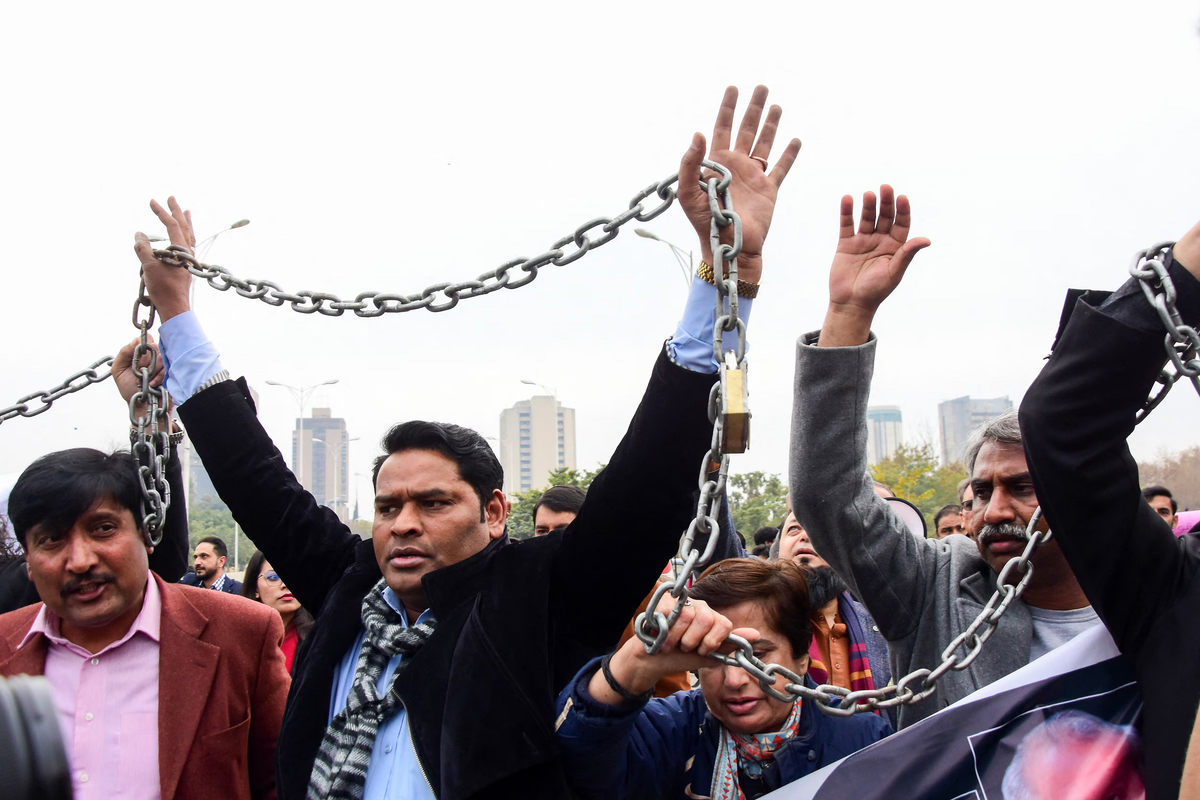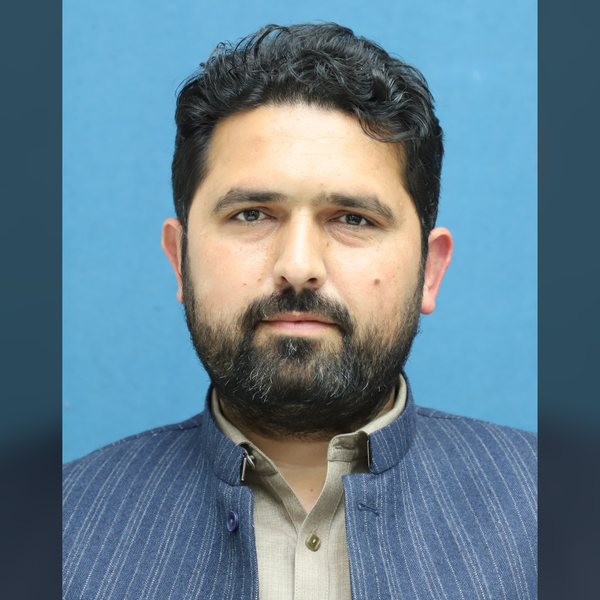Women journalists in Pakistan face cybercrime charges over colleague’s marital spat
Digital rights activist says vague FIRs under Prevention of Electronic Crimes Act illustrate how law continues to be misused
News Desk
The News Desk provides timely and factual coverage of national and international events, with an emphasis on accuracy and clarity.

Four women journalists are facing criminal cases under Pakistan’s controversial Prevention of Electronic Crimes Act (PECA) after a complaint was lodged by a journalist following a dispute involving him and his former wife, who is also a journalist.
The Federal Investigation Agency (FIA) registered cases against National Press Club (NPC) members Nayyar Ali, Sehrish Qureshi, Maira Imran, and Shakeela Jalil.
The journalists were part of an anti-harassment committee formed by the press club to review allegations exchanged between the two members.
After the committee ruled that both were guilty of misconduct, the husband approached the FIA, alleging that the committee members had “facilitated” harassment against him on social media.
Speaking to Nukta, Sehrish Qureshi, who is also nominated in the case, explained the dispute.
“Nasir Khattak had married journalist S*. Her family knew about the marriage, but his family did not. When the marriage was disclosed, a rift developed between them. Both posted critical comments about each other on social media and tried to drag the National Press Club (NPC) into the matter, but NPC said it was their personal issue,” she said.
Qureshi said both later submitted written applications asking NPC to intervene. “They accused each other of harassment within NPC premises. A committee was formed to hear both sides. Khattak wanted the NPC to cancel his ex-wife's membership and delete material about him that was being circulated in WhatsApp groups. But she was only sharing her grievances, and NPC did not accept his demands. After that, Khattak filed an FIR against his ex-wife and us, accusing us of defaming him and facilitating the sharing of his private details,” Qureshi said.
‘Case illustrates how PECA continues to be misused’
Digital rights activist Farieha Aziz said the case illustrates how PECA continues to be misused. “This FIR is very simply the intended effect of this law, especially the amendments which open the door for anybody to report anything against anyone. And we've seen a pattern of vague FIRs,” Aziz told Nukta.
She noted that vague accusations like “defaming someone” are often used without clarity. “Nothing from the FIR tells you exactly what the issue is,” she said. Aziz also pointed out that while the alleged occurrence was in 2024, the FIR was registered in February 2025 and only surfaced recently. “So why had it been concealed? How is it that if it was of such an urgent nature, all these months, nobody was informed, asked to come in?” she questioned.
Aziz warned that the law enables a pattern of unfair targeting.
“Even in the past, there have been some cases where admins of groups have been held liable. And that is probably with the presumption that they had knowledge of it or that they either didn't take action. And of course, there's no element of fairness when such things happen, and a lot happens based on presumptions,” she said.
“But again, for someone not to know or not to be given an opportunity to clarify, or the fact that an FIR is registered and we haven’t seen any investigations, to my knowledge at least, is exactly why this law allows for such a broad ambit. The way that they have changed the definitions of who can be a complainant means that all it takes is for somebody to be nominated in an FIR. We've seen many cases where hundreds of people are nominated, while others aren’t.
"Just that becomes the basis enough, which is why I keep saying that in the criminal justice system, process becomes punishment. Once there's an FIR, once you are named, then you have to get bail, you have to appear for investigation, and there are all kinds of coercive measures until the time you are able to get it quashed, if at all. In the end, you might have nothing to do with it, or it may not even qualify as an offense under the law, but you’ve still been dragged through the process. That is exactly what happens under PECA.
"You’re just dragged through the process, and a summons in an FIR simply initiates that. That’s all there is to it. And that is precisely what should not be allowed. But the amendments have allowed for it even more,” she said.
Aziz stressed that journalists must take a stronger stand. “There can be no ifs and buts. There can be no who’s a journalist, who’s not a journalist. This is a law that impacts everyone,” she said, urging media workers and politicians to push back against PECA’s misuse.
PJUF condemnation
The Pakistan Federal Union of Journalists (PFUJ) also denounced the cases, calling them an attack on press freedom. PFUJ President Afzal Butt and General Secretary Arshad Ansari expressed solidarity with the journalists, demanding that the government withdraw the charges.
“Registering a case against women journalists for pursuing a complaint about a woman’s husband is not only unjust but also an affront to the principles of journalism and human dignity,” PFUJ said in a statement.
The union also revealed that four administrators and 171 members of the NPC Women’s Caucus WhatsApp group were included in the case. It demanded immediate action against those responsible, terming it harassment and intimidation of journalists.
Reiterating its long-standing demand, the PFUJ called for the repeal of PECA, warning that continued misuse of the law poses a direct threat to free expression in Pakistan.
“If the government fails to dismiss the cases and hold the responsible officials accountable, journalists across the country will stage strong protests,” the union warned.










Comments
See what people are discussing